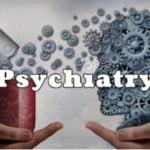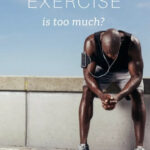A personal look into Dr. Miletic's recovery from a career-ending injury.
The year was 1984. I had forfeited an orthopedics surgery residency at the University of Western Ontario in order to train, and to hopefully compete, in the Olympic Games after the end of my internship. I did it without hesitation because to me at the time, the Olympics and my sport were everything. This would’ve been a difficult priced residency at a highly regarded program. It was when the chairman of the department approached me with a choice.
It was a no brainer: I was going to be an Olympian.
After moving to Montreal to train with the national team, I made the Olympic standard in training. I was focused completely on Los Angeles. The Soviets weren’t there because of a boycott, so my chances for success were pretty fair, I felt.
One morning though, I woke up with severe hip pain after having what I thought was a pulled Glute muscle the previous night during training. Unable to walk, I literally crawled into the kitchen to try to get breakfast and then get to a doctor. I was able to see the chief of sports medicine at McGill in Montreal, who immediately diagnosed a torn piriformis muscle off of my hip bone. I was offered the opportunity of surgery, but after long discussion, we realized that there was no way that I could possibly recover in time for the Olympic Games.
My dream was dead in an instant. I had no residency to go into. Twelve years of intensive training felt like it had gone down the drain. I was devastated.
I recall being moderately depressed for over an entire year afterwards. I felt like I had lost my purpose, my identity, who I was and what I was fighting for. I no longer had control over my body, which was the tool and the outlet for my dream. The depression progressed to more severity and it led me to seek help a year and a half later.
Ultimately it lead me into a career of healing and helping injured athletes both from psychological as well as a physiologic perspective.
Injury in retired athletes, especially when injury causes retirement, can be devastating. There is no medical, financial, or cultural support. Professional athletes are never supported by their Players Association. Their teammates drop away. They are alone and left to deal with life on their own.
Since working in the field for the last 30 years, I have discovered that the rates of depression with the injured athletes approaches 100%. Rates of divorce, suicide, and addiction shoot up astronomically. Yet this is only beginning to be talked about. And much of the conversation is limited to head injuries only.
There are many many people simply existing after losing careers, experiencing injuries or traumatic accidents, or never fully recovering from surgeries who have no resources in the medical community.
I have spent much of my career dedicated to treating people in this space. Because of functional medicine, we are now able to offer some very unique healing methods. However, this is always embedded in a relationship of understanding, insight, and dealing with what it means to have lost a career, body functions, identity, self-confidence, and having to deal with, at times, pain that is there every single day.
The pain is physical but it also becomes a very dark world mentally to live in. Yet, once studied, understood, and treated, recovery from injury, depression, and severe personal damage is now possible.








